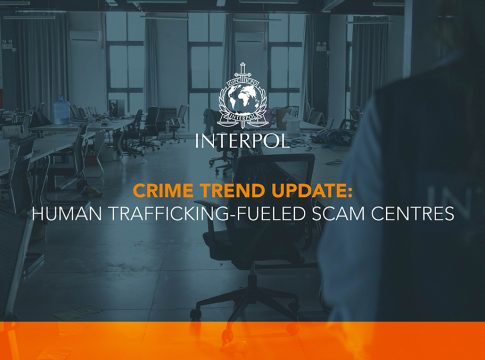Global Trafficking for Online Scams: A Growing Crisis
Lyon, France – In a troubling new trend, INTERPOL reports that online scam centres fueled by human trafficking have expanded their reach, with victims trafficked from 66 countries worldwide. This stark reality underscores the growing complexity of global crime that knows no borders, affecting communities on every continent.
Rising Threats Across Regions
A significant 74% of the trafficking victims are being brought to what is considered the original crime hub—Southeast Asia. These individuals are often lured by false job advertisements, then detained and coerced into participating in online scams. While Southeast Asia remains a focal point, INTERPOL’s analysis indicates a concerning shift with West Africa emerging as a potential new regional hub for these illicit operations. The Middle East and Central America are also witnessing an increase in such criminal activities.
Demographics Behind Trafficking
Current estimates suggest that approximately 90% of those facilitating human trafficking are based in Asia, although 11% hail from South America and Africa. Alarmingly, a large majority—80%—of these facilitators are men, with 61% falling within the 20 to 39-year-old age bracket. These demographics highlight a concerning pattern of young adult offenders contributing to the exploitation of vulnerable populations worldwide.
The Double-Edged Sword of Online Scams
Not all individuals involved in scam operations are victims of trafficking, but many who are held against their will face horrific conditions. This includes severe extortion, physical abuse, and sexual exploitation. The scams target a wider audience, leading to significant financial and emotional devastation for countless victims across the globe.
INTERPOL has categorized this growing crisis as a global emergency. In 2023, they issued an Orange Notice—a notification of imminent threat to public safety—aimed at alerting countries to the escalating nature of human trafficking linked to online scams.
Technological Transformations in Crime
Emerging technologies, including artificial intelligence, are increasingly shaping the methods used in these criminal enterprises. AI has been utilized to create convincing fake job postings to attract victims and develop ‘deepfake’ identities for use in sextortion schemes. Furthermore, the routes exploited for trafficking victims can also facilitate the illegal trade of drugs, firearms, and endangered species.
Call to Action
Cyril Gout, Acting Executive Director of Police Services at INTERPOL, emphasized the necessity for a synchronized international response to this global challenge. "The reach of online scam centres spans the globe and represents a dynamic and persistent global challenge," Gout stated. He urged for enhanced information sharing between law enforcement and stronger partnerships with non-governmental organizations (NGOs) and tech companies to combat this evolving crisis.
The urgent need for coordinated action becomes even clearer as efforts to dismantle these scam centres yield results, including a significant operation in the Philippines and another in Namibia, which recently rescued 88 young individuals forced into fraudulent activities.
As this crisis continues to evolve, the international community must remain vigilant and proactive in addressing the myriad challenges posed by human trafficking and online scams.

Focuses on crime, public safety, and regional events.
Bio: Marcus is a community-based journalist passionate about reporting impactful stories that matter most to readers.

